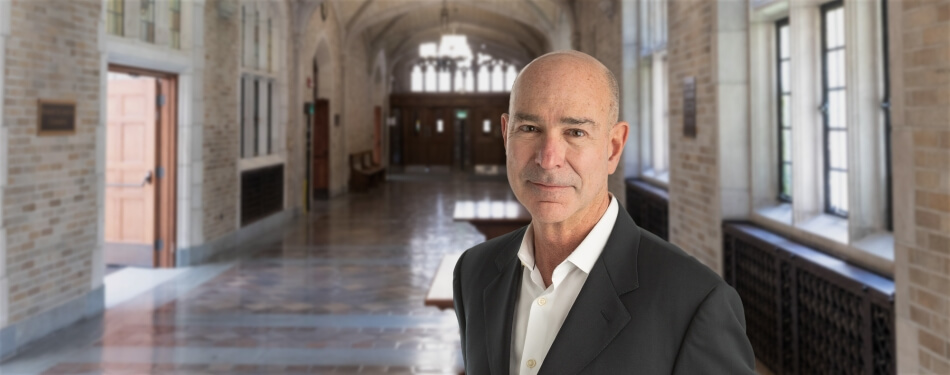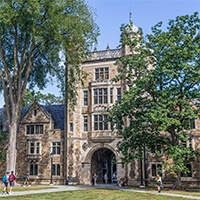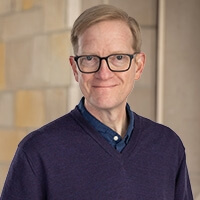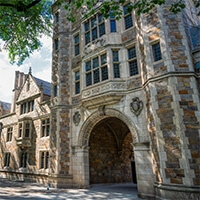Emeritus Professor James Hathaway is among the newest fellows of the Royal Society of Canada (RSC), that nation’s top academic honor.
Fellows are elected by their peers “for their outstanding scholarly, scientific and artistic achievement. Recognition by the RSC for career achievement is the highest honor an individual can achieve in the arts, social sciences, and sciences,” according to the announcement. Hathaway—the James E. and Sarah A. Degan Professor Emeritus of Law—is among 101 new fellows of the society.
“Coming on the heels of my retirement from Michigan, my induction as a fellow of the Royal Society of Canada felt very much like a career capstone. It was an unexpected and surprisingly gratifying recognition by the country where I was born and where my academic career began—a signal that my efforts to reform the way we approach refugee protection had been noticed and appreciated,” Hathaway said.
The society’s announcement describes Hathaway as “the world’s leading refugee law scholar. Over the past four decades, his voice has reshaped the way courts, policy makers, and scholars around the world understand refugeehood and the rights of refugees. Hathaway has devoted himself to social justice, in particular to ensuring that human rights inform how judges and policymakers around the world approach refugee protection.”
“Jim Hathaway’s contributions to the field of public international law are wide-ranging, long-lasting, and deeply influential.”
Before his retirement from the Michigan Law teaching faculty in 2022, Hathaway served as the founding director of the first-in-the-world Program in Refugee and Asylum Law from 1998 to 2022. The program helped students become leaders in refugee law and related fields, and its annual Michigan Colloquium on Challenges in International Refugee Law developed the widely cited “Michigan Guidelines on the International Protection of Refugees.”
“Jim Hathaway’s contributions to the field of public international law are wide-ranging, long-lasting, and deeply influential,” Interim Dean Kyle Logue said. “His recognition as a fellow of the Royal Society of Canada is fitting and extremely well deserved.”
Founded in 1882, the RSC recognizes excellence, advises the government and the larger society, and promotes a culture of knowledge and innovation in Canada and with other national academies.
“The Royal Society of Canada is very proud to welcome today an imposing group of inspiring scholars, artists, and creators whose peers have recognized their exceptional contributions to the world of science and culture and to the well-being of our society,” RSC President Alain-G. Gagnon said. “The impact of their work will continue to be felt in the development of public policies for years to come, while adding greatly to the enrichment of public life.”







